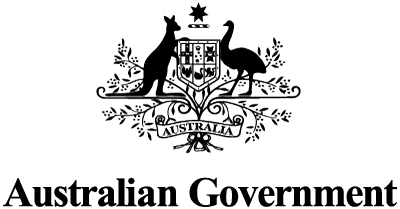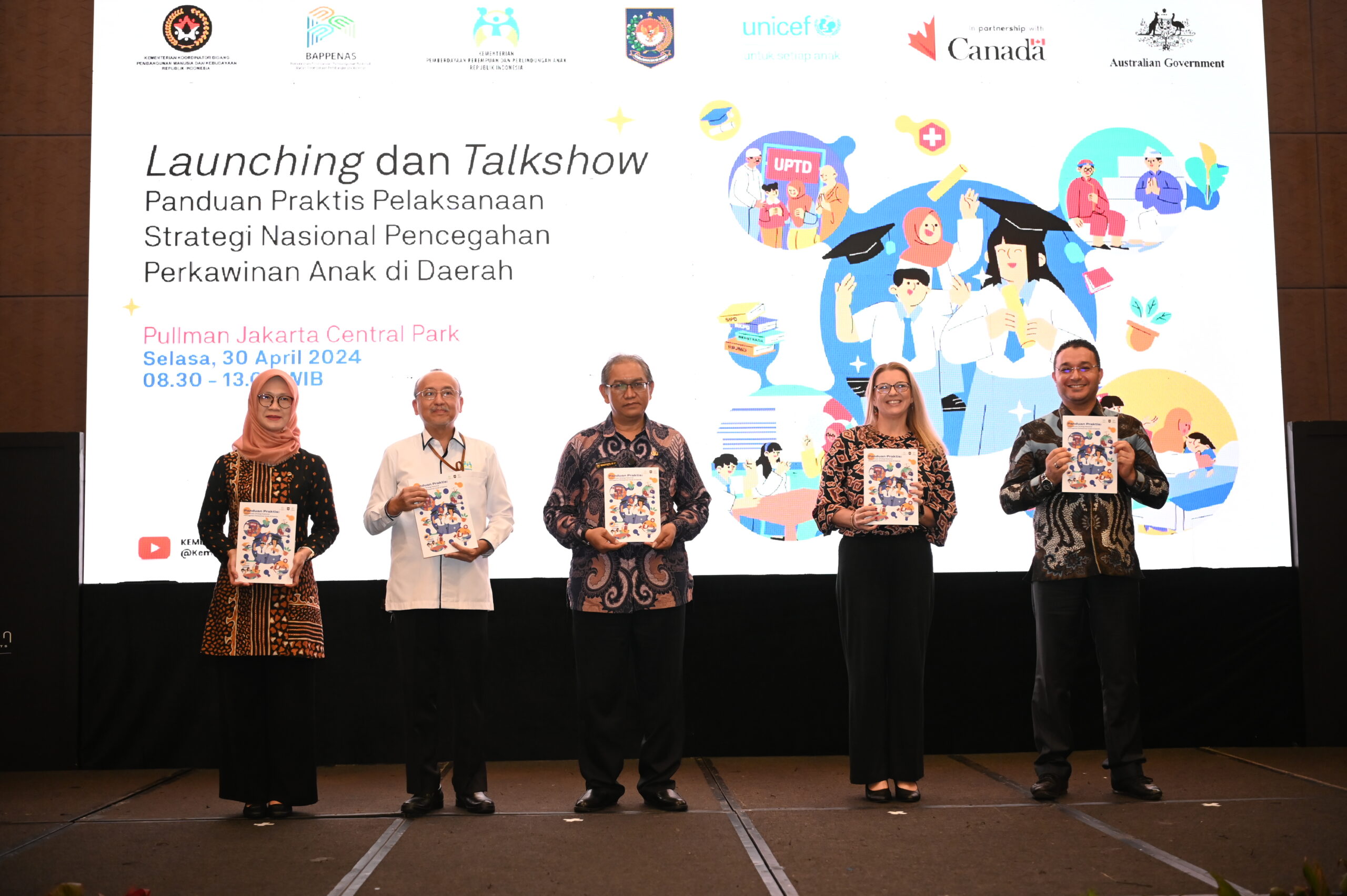To tackle child marriage in Indonesia, the government, alongside development partners and civil society organisations, launched a Practical Guide for Implementing the National Strategy to Prevent Child Marriage in Regions in Jakarta on April 30, 2024.
The guide is the result of a collaborative effort between the Ministry of Women’s Empowerment and Child Protection (KemenPPPA), the Coordinating Ministry for Human Development and Culture (KemenkoPMK), and the National Development Planning Ministry/National Development Planning Agency (Kementerian PPN/Bappenas). Its development was supported by the Australia-Indonesia Partnership for Inclusive Communities (INKLUSI) program, the Australia-Indonesia Partnership for Justice 2 (AIPJ2) and UNICEF.
During her opening speech at the launch event, Minister of Women’s Empowerment and Child Protection, Bintang Puspayoga, emphasised the crucial role of collaboration and active stakeholder involvement in eliminating child marriage in Indonesia.
“Over the past three years we have seen a decline in the incidence of child marriage. In 2021, the rate dropped from 10.35% to 9.23%. It further decreased to 8.06% in 2022 and 6.92% in 2023, surpassing the National Medium-Term Development Plan 2020-2024 target of 8.74% by 2024. However, efforts to eliminate child marriage must continue. Therefore, the government, together with development partners, has developed the Practical Guide for Implementing Stranas PPA in Regions,” said Bintang Puspayoga.
The process of developing the guide involved various stakeholders and went through several stages. INKLUSI partners, along with AIPJ2 and UNICEF, played a significant role – from providing substantial input and technical support to being actively involved in facilitating training sessions and testing the guide. This collaboration aimed to ensure the guide could be effectively implemented in efforts to prevent child marriage, particularly in cooperation with local governments.
Sanchi Davis, First Secretary for Development Cooperation at the Australian Embassy in Jakarta, expressed Australia’s support for Indonesia’s efforts to prevent child marriage. She emphasised the strategic role of the Practical Guide for Implementing National Strategy in Regions in achieving the Sustainable Development Goals and eliminating harmful practices, including child marriage.
During a talk show at the launch event, Ridho Putra from the National Children’s Forum highlighted the importance of involving all parties, including children, in efforts to eliminate child marriage and address the stigma surrounding reproductive health.
“Preventing child marriage requires active participation of the entire community, including children. Child marriage occurs due to various factors, including a lack of knowledge about reproductive health. We should not shy away from discussing reproductive health to prevent child marriage,” said Ridho Putra.
The collaboration across sectors aimed to create a holistic effort in prioritising child protection, leading to an inclusive and violence-free future for Indonesian children. This aligns with the Indonesian Government’s visions for ‘Indonesia Layak Anak 2030’ and ‘Indonesia Emas 2045’.




